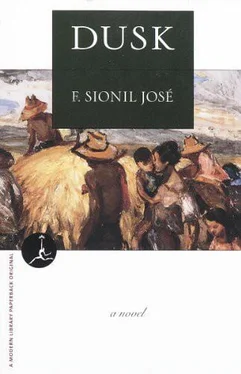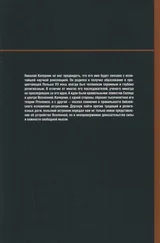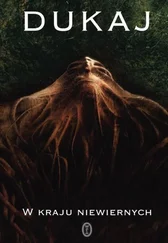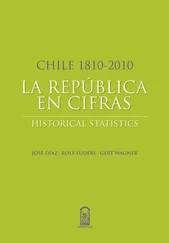He paused to look at it — it was as if he could touch the green, green peak although it was still very far. God, he prayed, give me strength, this is all I ask. They have wings and I have but two aching feet. Surely, they must have a guide who knows this place, the recesses in these mountains. How else could they have known the way? You are right, honorable Cripple, we have been betrayed again. This is the changeless way of the world; will it never end?
The tough mountain grass, sharp and pointed, lashed at him and boulders rose to block his way. Beside him, the gullies yawned and he stumbled but always rose and ran onward, not wanting to look back for fear that he might see giant horses thundering after him.
The dried carabao meat and the rice were long gone, so when hunger struck, he gathered a few green guavas along the trail. His legs were blistered. Where the thickets were high and thorny, they had lashed at his arms as well.
He stopped once to drink from a small stream that forked from the Buaya River, then rested his back against a mossy boulder, facing the turn of the stream and the trail which he had just taken. In a short while, he would be in Baugen and he hoped there were people there who could tell him how long ago the president had passed. There were reports he could not quite believe, how the Americans were welcomed with brass bands and cheers in some of the towns of Sur. What was it that made his own people greet their conquerors and regard their own countrymen with ridicule if not hostility?
He brought out the notebook from the knapsack.
I am now very tired. My feet are sore. My chest is ever tightening and a weariness like a fat sack of grain weighs me down. At night, before I sleep in the open, the mosquitoes buzzing in my ears and keeping me awake, I wonder if I will wake up to a morning blessed with sunlight. I wonder why I am here, so far away from home. Is it because I cannot say no to the Cripple? Just as I couldn’t say no to Padre Jose? The Cripple, Don Jacinto — they did not say it, but I know they love Filipinas and this I cannot say for myself because I am not sure. How can I love a thousand islands, a million people speaking not my language but their very own which I cannot understand? Who, then, do I love?
Tomorrow, when I wake up, I will no longer be surrounded by rice fields. I will most probably rise with the sun as it climbs from the east, first like a big winnowing basket of orange, then a blinding presence which brings green to the leaf, fruit to the trees, and yes, blue to the sky. It is the same sky above Cabugawan, a kindly roof to the people there, my kin, my loved ones.
O Apo Dios who sees everything, knows everything, am I wrong? I feel no affection for these mountains, these people whose fates are not my concern. I feel only for Cabugawan, my people waiting for my return, waiting perhaps in vain.
The tiredness in his bones disappeared, and once again he was alive to the sounds and scents around him and to the peace that the forest seemed to exude, comforting him with its somber stillness. He rose quickly, making sure the sack was slung securely on his shoulder. He always examined the twine with which it was tied — it was not loose even after all that climbing and straining. In fact, the sack had given him comfort, as he also used it for a pillow.
One more hill, then Baugen. He recalled what he knew of it, a village with a dozen or so thatch-roofed houses, farmers who worked the narrow valley and looked after the ranches of cattle that were now sparse. They were all Ilokanos, and braver than most, for it was in these hills where the Igorots often rampaged. Baugen was also a way station for those who went up the pass at Tirad. How often had Padre Jose and he stopped here for a bath at the village well, for provisions, sometimes dried meat and dry-season fruits, a restful night in one of the houses, an early-morning Mass, perhaps a baptism and confirmation, then onward to the pass by noon.
He breasted the hill, no longer keeping to the trail which he knew the Americans would take; he walked behind stands of grass as he cautiously approached the village.
It finally came into view. There were more houses now, more fruit trees. Then a shot rang out. He dropped onto his stomach; no, the shot was not for him. Blue-shirted American soldiers dashed into the village, shouting, firing. The screams of pain and fear were not only of men and women but of children. He crawled away to the edge of the forest bordered by butterfly trees and though he could not see the village now, he could still hear the screams, the guttural shouts, and the neighing of frightened horses.
When the firing stopped, he slithered close to the village again; the big men walked about the village. They had gathered in small sheaves portions of a roof and were igniting them and tossing them onto the houses. How easily the grass caught fire — first a grayish trail of smoke, then the flames in a crackling, swirling rage. Sparks burst from the roofs and landed on the other roofs which were already burning, too. A dozen houses — and not one was spared.
Po-on all over again, the toil of years vanishing in an hour. So this is how a house burns; how quickly the fire devours everything — the palm-leaf sidings, the floors of bamboo, all the familiar implements, the remembered corners, a bamboo post where some coins were kept in its hollow, an eating table, a battered chair, a chest. In a while, everything was ash but for the sturdy posts of wood which still stood, blackened and red, slowly burning, smoking.
The soldiers did not leave immediately; it seemed as if they wanted to be sure that nothing was spared, nothing lived. They had bivouacked in a gully beyond the village, and they came back to look at their handiwork. They had mounted their horses, their packs in their saddles. He counted carefully — there were twenty-three soldiers, and the twenty-fourth did not sit upright; he was slumped like a sack across his horse instead. Perhaps the soldier was dead, for his body was tied to the saddle.
Were they all the Americans who had come to this village? They rode easily and they seemed to be in no hurry as they headed toward Tirad.
Istak looked keenly around him, wondering if there was someone left behind, a rear guard, perhaps, or the main force following this patrol. There was none.
He ran to the village, no longer cautious, wanting to know if there would be someone, anyone, who had lived through this hell. Not a moan, not a whimper from the bloodied bodies sprawled in the yards; to each he went looking for a breath of life. Who would bury them? There was nothing he could do, no one he could save. He moved away from the human pyre, the bodies with indistinct features. Toward the other end of the village was an old brick-lined well and there, a youth slumped on the wet ground, a spot of red on his back.
Istak bent over him — he was not even seventeen. His pulse was still beating, though faintly. Istak turned him over carefully and the glazed eyes beseeched him. He tore open the shirt. The bullet had pierced his chest. Only a miracle could help and when Istak closed his eyes to pray, the path ahead of him was filled not with light but with darkness.
“Tell me, what happened?”
The lips opened, a gurgling sound. There was no need for him to know. Had he not seen what was done? The gurgling ceased, blood had foamed in the young man’s lips and some of it had dried. Then the words came softly, disjointed. “My sister — she was taking a bath at the well … one of them started forcing her, I cut his skull in two …” The eyes closed.
Istak could feel the life leak away as if from a broken pot. He could not put back the blood which had soaked the ground around him; it was not just this boy’s blood — it was an American’s as well.
Читать дальше












